UK’s last Eurovision winner Katrina recalls ‘shocking’ victory: ‘You could feel the love’
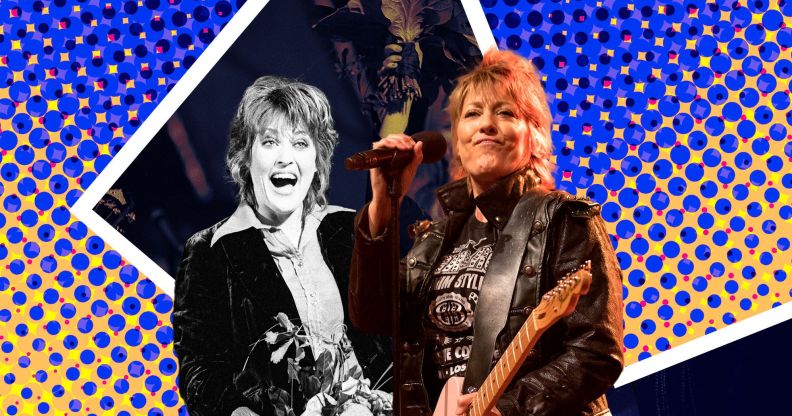
Katrina and the Waves famously won Eurovision in 1998. (PinkNews/Getty)
When Katrina Leskanich took to the Eurovision stage to perform “Love Shine a Light” as part of Katrina and the Waves, she felt “sheer bloody panic”.
That was in part because she was performing with a 24-piece orchestra on live television, but it was probably also something to do with the fact that she had never even watched the Eurovision Song Contest before.
Still, she and her band went on to win, cementing their place in Eurovision history. To this day, “Love Shine a Light” is one of the contest’s most enduring anthems – and Katrina and the Waves hold a special place in the hearts of Eurovision fans, more than 25 years after that victory.
Ahead of the 2023 contest in Liverpool, PinkNews caught up with Katrina to talk about how the contest has changed, why it’s a bastion of inclusivity and what her advice is to this year’s batch of hopefuls.
Take us through what your own Eurovision experience. What were the highs and the lows, and were there challenges along the way?
The biggest challenge was that I had never seen Eurovision before taking part. The BBC gave me a stack of 12 video tapes of past Eurovisions and told me to get my head around this over the weekend. Halfway through I was more confused than ever. From penguins to Genghis Khan, it was one poodle short of a circus. I wasn’t sure how this would square with our cool Ramones-type image. In truth, it didn’t as the band split up shortly afterwards.
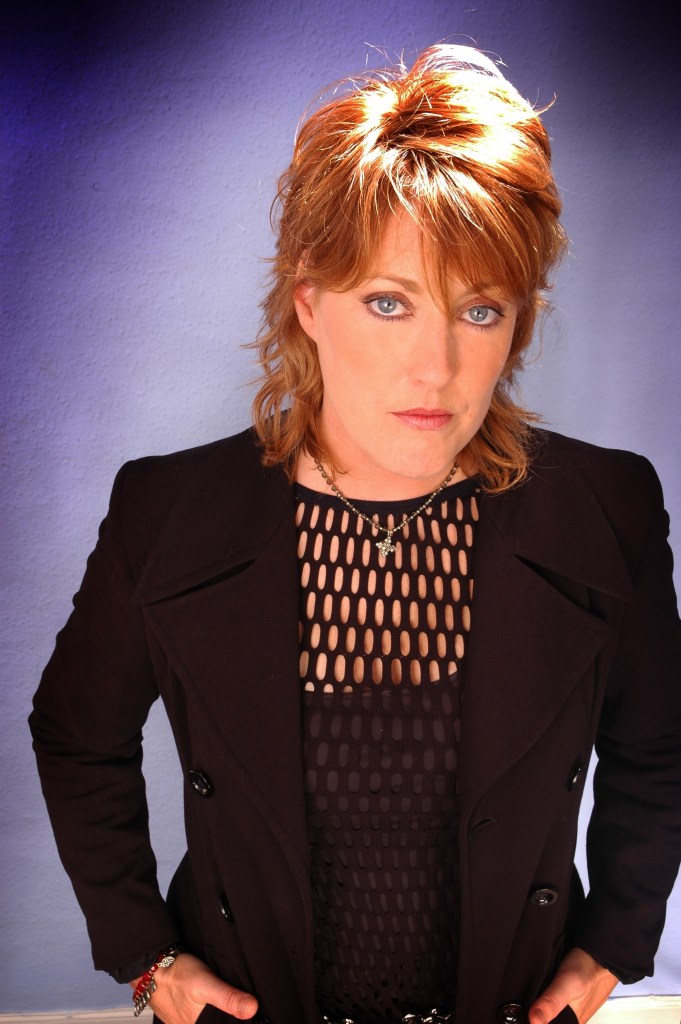
What was it like performing on the Eurovision stage? What goes through your head in a moment like that?
Sheer bloody panic. I was singing to a 24-piece live orchestra. Miriam Stockley and Beverley Skeete, our incredibly talented back-up singers, were as cool as cucumbers and when I asked them how they could remain so calm, they replied: “Beta blockers, darling” which is what [some] opera singers use to relax the voice. Thanks, girls, you could have hooked me up!
Did you feel any pressure or trepidation beforehand?
We were asked by [someone] given the task of finding Eurovision entrants for the BBC if we had anything appropriate for Eurovision, so we gave him “Love Shine a Light”. He loved it, so we thought that would be it and they would get someone much younger to sing it, but then Warner Records offered us a deal if we did it… so, we needed a label and jumped at the opportunity, although our guitar player decided it wasn’t for him and we got a stand-in.
At the time, people said we would lose credibility if we did it but I thought, well, what would happen if we won it. Of course, everyone said the UK could never win because of “political voting” but I wasn’t going to let that get in the way.
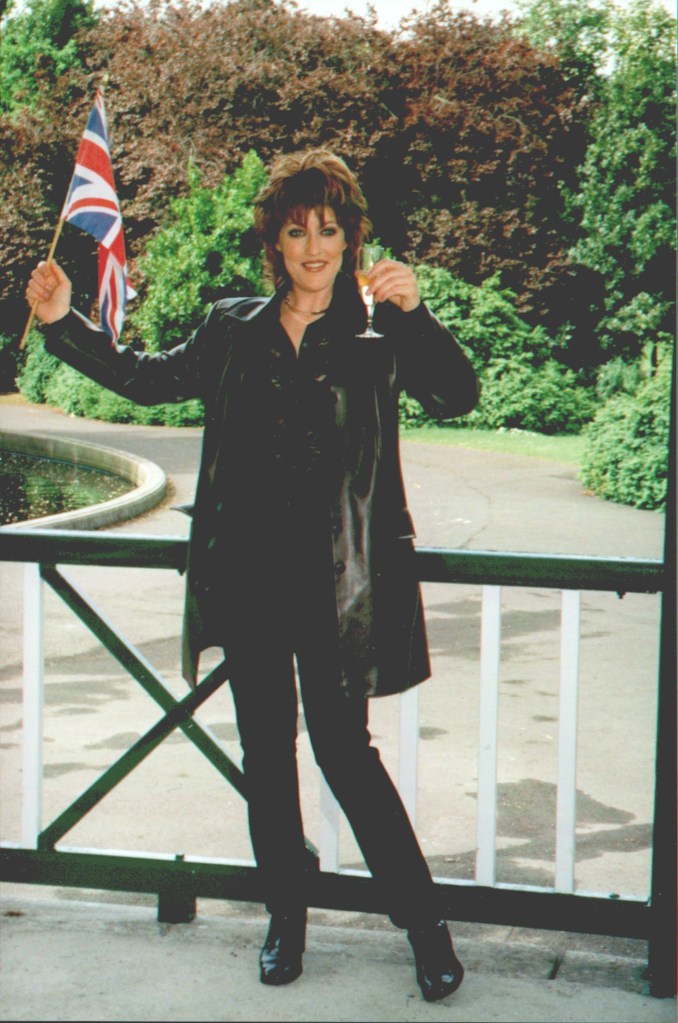
How did you feel as the results started to come in and it became clear that you were on track to win?
Everyone backstage was celebrating with generous amounts of alcohol even before the votes started coming in. There was still a bit of doom and gloom within our little group. It was a mixture of relief that my performance went pretty well and trepidation over the fear of the possibility of coming last. When we started stacking up 12s, the champagne was flowing and we were giddy with the possibility of winning.
What was it like to actually win the contest?
I had no idea we would have to perform again if we won. I was shocked when Ronan Keating put a hand on my shoulder and said, “C’mon love, time to do it again.” I was flabbergasted. The cameras followed me out of the green room and down a long corridor and I was saying to the camera, “Go to bed now mama and daddy”, because my father wasn’t well and I didn’t want him to have another stroke.
The audience were clapping along so loudly that I could barely hear the music to know when to come in. Miriam [one of the back-up singers] was helpfully playing the tambourine close to my ear so that at least I could hear the beat. Even so, I still sang out of time and the wrong lyrics on the first two lines of the song. I could see Terry Wogan in his commentary booth, he raised two glasses, one with champagne and the other with Baileys Irish Cream and I waved back.
Back at the hotel, Terry and I drank a few Black Velvets (Guinness and champagne) and smoked a couple of cigars until 4am, then I had to get up again two hours later for breakfast TV.
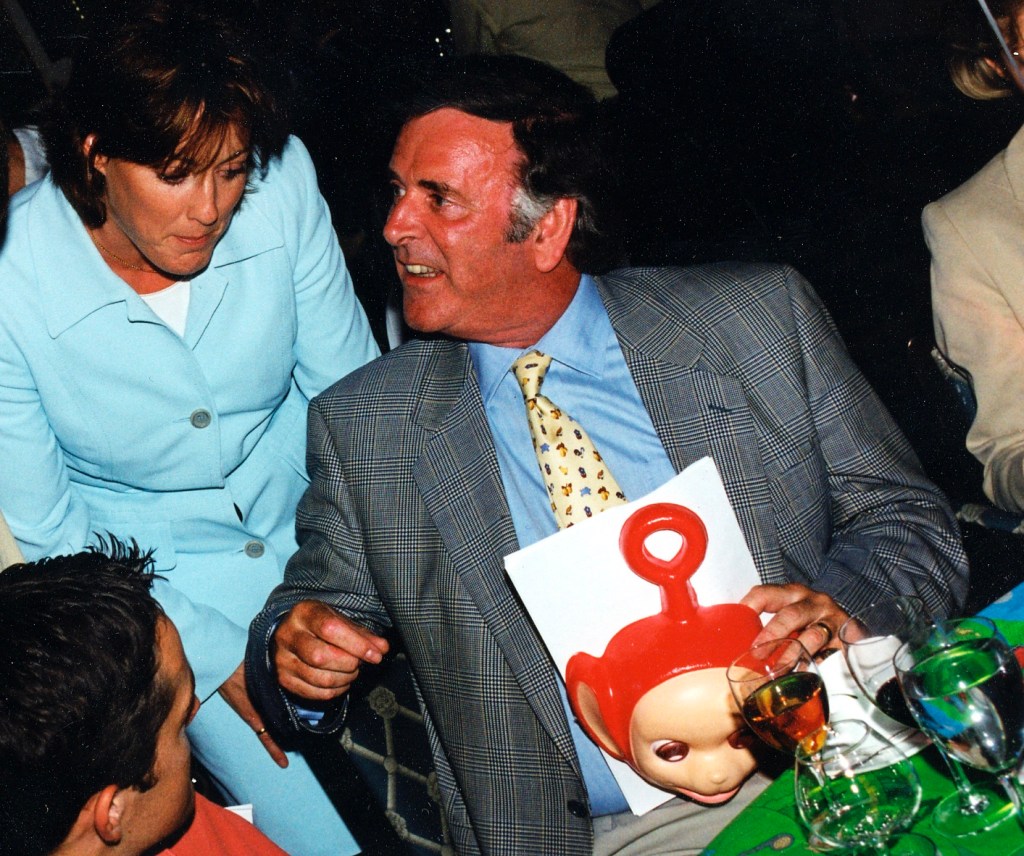
What was the Eurovision Song Contest like when you won compared to what it’s like today? Do you think it’s become better or worse over the years?
The year after our win, the amazing Dana International won. I remember standing on stage with Terry Wogan to present the award to her. We waited 15 minutes and fortunately just before Terry resorted to telling a few jokes, Dana finally made her entrance in a stunning new outfit, complete with a plume of feathers that nearly took my eye out. At that moment, I felt that the competition was changing and Eurovision was going through a transformation.
The competition is ever-evolving, as [is] everything in life. There’s little point attaching to some old preconception or thinking things were better back in the day. At the heart of it, the Eurovision Song Contest is an anomaly. It’s unique in that its past is embraced as fondly as its present incarnation. It is much-loved across Europe and Australia and gaining popularity in America. When you’re standing on stage, you really can feel the love.
What was the impact of your Eurovision victory both personally and professionally?
The band – Katrina and the Waves – split up the year after the win. I was offered a three-hour show every day on BBC Radio 2 and decided to accept. That caused friction and division within the group so that was it.
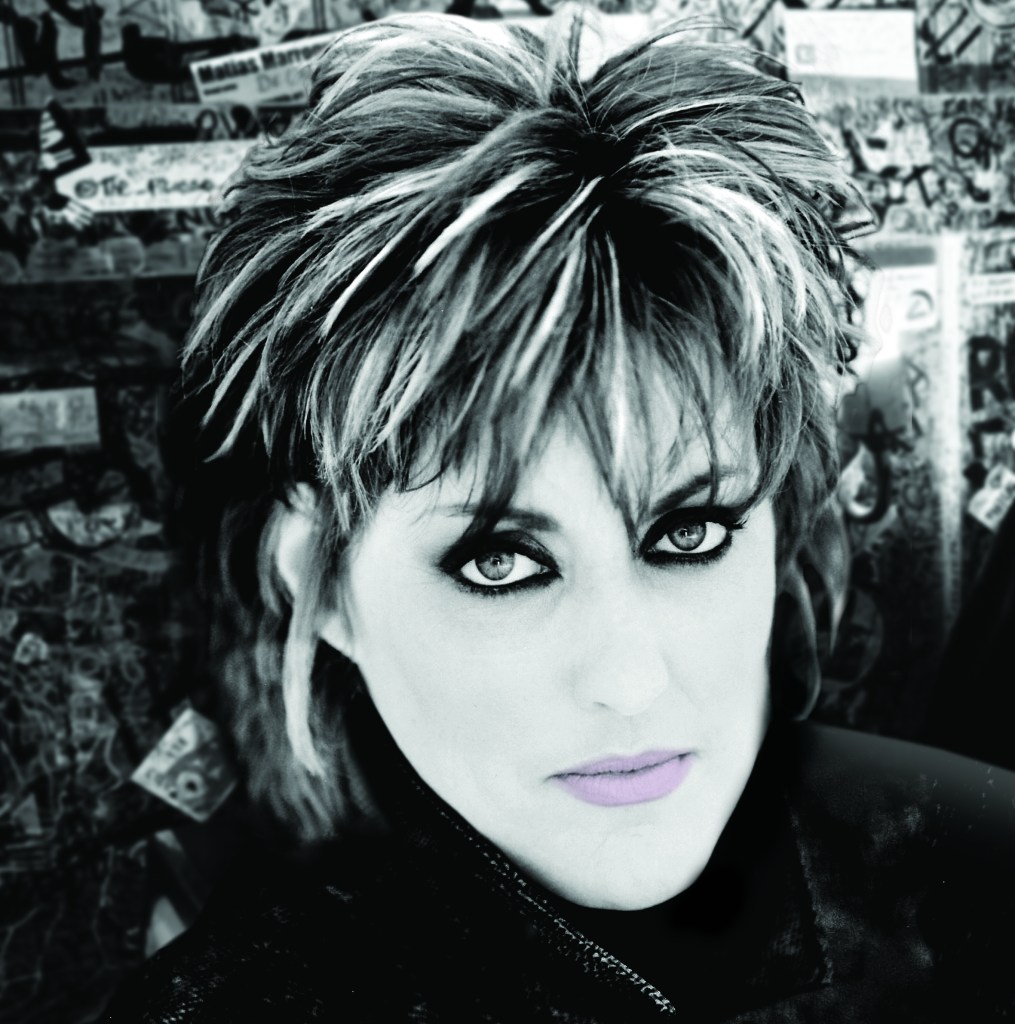
You were the last person to win Eurovision for the UK – why do you think we haven’t won since?
Wrong choices of artists and songs. It was so frustrating year after year to hear such lame representation. The UK is teeming with musical talent. Every other country understands how to play the game but for some reason the UK didn’t get the memo. It’s all back on track now. It’s been fruitful to entrust big-name production companies and writers to get it right and it makes perfect sense and this has been proven by Sam [Ryder]’s brilliant entry last year which came second and I’m sure Mae [Muller] is going to do very well too.
Why do you feel Eurovision has taken on such significance among LGBTQ+ people?
It’s always been a camp and glamorous glitzy gown fest with the odd buxom milk maid, babushka and kettledrum. It’s fun and funny. It’s eclectic and inclusive, crazy and weird, emotional and emotive. Our community can appreciate this and we have a sense of humour that makes perfect sense of everything about Eurovision.
You’ve just released a new single, called “Shut Your Mouth”. Tell us a bit about that song, what the inspiration behind it was?
Too much noise in the world. Too many opinions. Too little thought. Loud, blabby annoying monologues. As I say in “Shut Your Mouth”, some things are better left unsaid.
Is there anybody in particular you would like to see shut their mouth?
Blabbers and bores. There is way too much vocal noise. Less is more. Do shut up, for God’s sake.
Are you planning another album or more songs anytime soon?
I’m writing an album for 2025 which will be the 40th anniversary of “Walking on Sunshine”. It’s going to rock. It will be high energy and quirky.
You’re also still touring regularly – do you get the same buzz from performing today as you did at the start of your career?
Much more so. It’s like no other feeling. It’s the one place where I can enter into a euphoric dream world.
Do you have any words of advice for the artists taking to the Eurovision stage this year?
Have a few cocktails to loosen up before your performance. There’s nothing worse than watching someone on stage who’s a quivering bundle of nerves. It might be the most nerve-wracking three minutes of your life but you never know, you might just win.
Visit Katrina Leskanich’s website here to find out about her tour dates.
How did this story make you feel?

